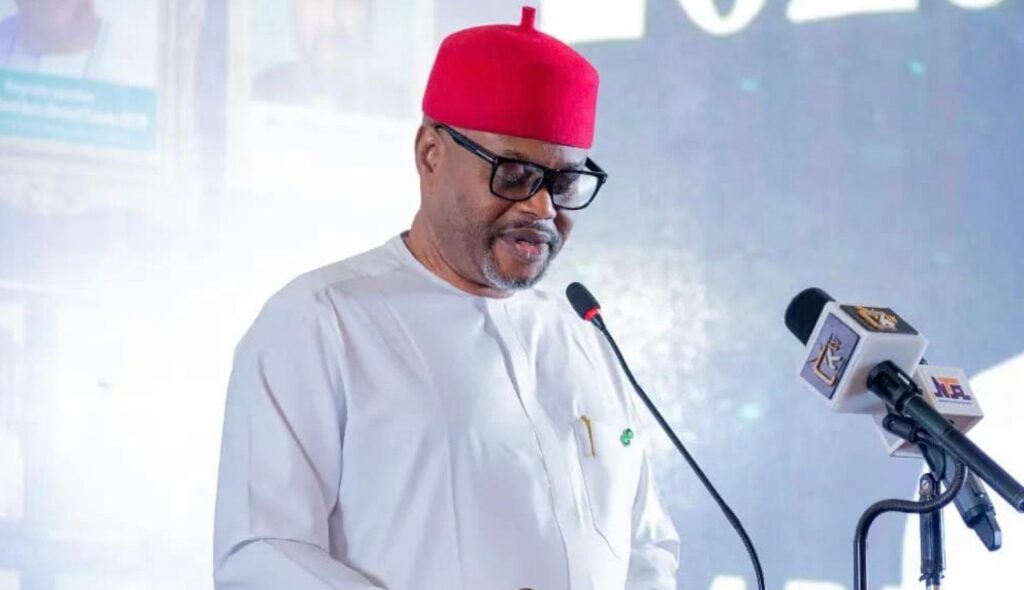
Certificate Forgery Allegations Against Uche Nnaji: A Reecho of Nigeria’s Unchecked Political Fraud
By Yinka Dams Olaiya


The allegations of certificate forgery leveled against Nigeria’s Minister of Science, Innovation, and Technology, Uche Nnaji, have once again stirred national discourse on the persistent culture of certificate forgery among the Nigerian political elite, a malaise that continues to undermine the integrity of public service and erode public trust in governance.
Despite repeated exposures of forged academic and professional credentials among politicians and appointees, the Nigerian state has consistently failed to demonstrate the political will to prosecute or punish offenders, allowing impunity to fester in the corridors of power.
A Pattern of Forgery Without Consequence
The case of Uche Nnaji is not isolated. Over the years, similar controversies have trailed several high-profile politicians:
- Biobarakuma Degi-Eremienyo, the former All Progressives Congress (APC) deputy governorship candidate in Bayelsa State, was disqualified by the Supreme Court in 2020 for presenting multiple inconsistent names and allegedly forged academic certificates
- Stella Oduah, a former Minister of Aviation, was accused of falsifying her National Youth Service Corps (NYSC) certificate. Despite widespread media reports, no formal prosecution has been concluded.
- Ademola Adeleke, the current Governor of Osun State, faced allegations over his secondary school qualification, which led to a temporary setback in his political career, though no criminal proceedings were ever finalized.
- Ayodele Fayose, former Ekiti State Governor, and Kemi Adeosun, former Minister of Finance, both faced public controversies over certificate irregularities, with Adeosun eventually resigning after admitting to possessing a forged NYSC exemption certificate.
In each of these cases, the political and legal systems failed to hold the individuals accountable through prosecution or sentencing, thereby sending a message that forgery is a forgivable offence if one holds political influence.
The Legal Consequences of Certificate Forgery in Nigeria
Under Nigerian law, certificate forgery is a criminal offence with severe penalties.
- Section 363 of the Criminal Code Act defines forgery as the making of a false document with intent to deceive, and
- Section 364 prescribes a punishment of up to 14 years imprisonment for anyone found guilty of such an act.
- Similarly, Section 465 and 467 of the Penal Code (applicable in Northern Nigeria) also criminalize forgery and the use of forged documents, carrying sentences of up to 14 years and fines.
Additionally, the Electoral Act 2022 (as amended) empowers the Independent National Electoral Commission (INEC) to disqualify candidates who present forged documents, while Section 137(1)(j) of the 1999 Constitution disqualifies any person found guilty of forgery from holding public office.
However, the glaring failure lies not in the absence of law, but in the lack of enforcement. While courts have occasionally nullified elections or removed candidates, no prominent politician has been criminally convicted or imprisoned for forgery, a reflection of the selective application of justice in Nigeria.
Why the Culture of Impunity Persists
Several factors have contributed to the continuous recycling of certificate forgers in Nigeria’s political class:
- Political interference: Ruling parties frequently shield their members from prosecution to protect political interests.
- Weak institutional enforcement: Agencies such as the Police, INEC, and ICPC often lack independence or courage to investigate politically exposed persons.
- Judicial delays: Protracted court processes allow accused politicians to complete their tenures before cases reach conclusion.
- Public complacency: Voters and party delegates rarely demand accountability, often prioritizing ethnic or monetary incentives over integrity.
The Way Forward: Restoring Integrity Through Systemic Reform
To forestall future occurrences, Nigeria must move beyond moral outrage to concrete institutional reform:
- Mandatory verification of certificates: INEC, political parties and all relevant agencies should adopt a centralized, real-time verification system with educational institutions and NYSC before candidates are cleared for elections or appointments.
- Automatic disqualification and prosecution: Any discovery of forgery should trigger both administrative disqualification and immediate criminal investigation and not mere resignation.
- Judicial fast-tracking: Election related forgery cases should be treated as pre-election matters with fixed time limits for determination.
- Public accountability mechanisms: Civil society and the media must sustain pressure on law enforcement agencies to act decisively.
- Political will and deterrence: The Presidency and the Attorney General must demonstrate zero tolerance by allowing prosecution of even cabinet members found culpable. For instance, the current scenario must not be swept under the carpet, if the Honourable Minister is found culpable he should be prosecuted and sentenced accordingly.
Conclusion
The allegations against Uche Nnaji are not merely about one man’s integrity but rather they highlight a systemic decay in Nigeria’s governance culture, where falsification of credentials has become a normalized path to power. Until Nigeria enforces its existing laws without fear or favor, the cycle of forgery, impunity, and moral erosion will continue to define its political landscape.
True reform will begin the day a politically exposed forger is not only exposed but prosecuted, convicted, and barred from office. Anything less sustains the message that in Nigeria, deceit in high places is not a crime but a career strategy.
Yinka Dams Olaiya LLM is the Lead Partner at Yinka Olaiya & Co. Ikoyi, Lagos
